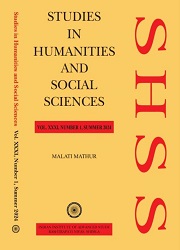Is the Self Experiential or Illusory ?
A Critique of Witness Consciousness and Minimal Self with Special Reference to Miri Albahari and Dan Zahavi
Keywords:
Self-awareness, Subjectivity, Minimal self, Witnessconsciousness, Dan ZahaviAbstract
In is paper, I would like to explore and critically analyze the standpoints of two well-known philosophers of this era – the notion of witness consciousness as advocated by Miri Albahari and the concept of minimal self as coined by Dan Zahavi from cross-cultural perspectives. Precisely, the paper intends to evaluate the conflicts between Albahari’s concept of witness-consciousness and Zahavi’s notion of minimal self. As both these thinkers belong to two strong traditions and uniquely represent their positions in apprehending the nature of the self, subjectivity, and consciousness, there seems an unbridgeable conceptual abyss between them. Whereas Albahari emphasizes theorizing the notion of witness-consciousness repudiating the concept of self, Zahavi promises to provide us a non-traditional account of self which in reverse challenges the claims of many no-self theorists including Albahari too. Hence, the other aim of this paper is to explore the possibility of any justified middle ground in understanding their conflicting positions. In this regard, my effort would be to prepare a framework for cross-cultural dialogue.



